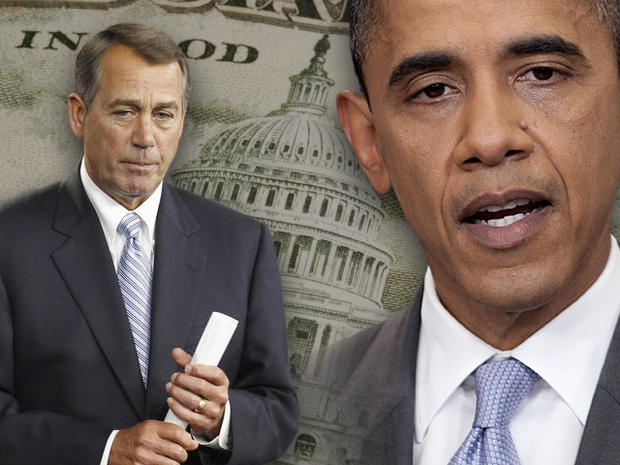Deal sets up December showdown, despite talk otherwise
President Obama and his aides are stressing that the debt deal he and congressional leaders agreed to would raise the U.S. borrowing limit through next year's presidential election without another bruising debate over the role of government. But is that true?
"One of the big battles was many Republicans wanted this to continue in five or six months we'd have this debate all over again. Anybody watching your program or others would say that would be a bad idea for the country and our economy," White House adviser David Plouffe said on CBS' "The Early Show" in an effort to sell the deal.
The precise terms of the deal remained murky Monday after it was announced late Sunday night. But what is clear is that there is a two-stage process. The first stage, which would avoid the first ever U.S. default on its prior spending commitments, would raise the legal U.S. borrowing limit by $400 billion now. The limit would be raised another $500 billion in the coming weeks with the establishment of a yet another congressional committee.
Those hikes would be in exchange for $900 billion in spending cuts over 10 years and would allow the government to stay under its legal borrowing limit through this year.
The panel, comprised of six Democrats and six Republicans from both the House and the Senate, would then make "recommendations" for up to another $1.5 trillion in spending cuts and possible changes to the tax code. If those recommendations are not approved by Congress, a complicated series of measures would force automatic spending cuts on the government, starting in December. But those automatic spending cuts are highly unpopular with both parties, giving each side strong incentives to negotiate a deal.
White House spokesman Jay Carney told reporters "this agreement ensures that the debt ceiling will be extended through 2012, removing that cloud of uncertainty from the economy."
House Speaker John Boehner has told his fellow Republicans that the committee will not be able use higher revenues to come up with $1.5 trillion in savings because the Budget Act of 1974 prohibits lawmakers from using assumptions that don't include planned expiration of the Bush tax cuts. And without those assumptions, it would have to come up with $3.5 trillion in deficit spending, Boehner says. That is a virtually impossible task given the difficulty getting both sides to agree to $1.5 trillion in cuts over ten years.
White House spokesman Jay Carney called the characterizations of such restrictions as "false."
"The suggestion that it is impossible for the joint committee to raise tax revenue is simply not accurate. It's false," Carney told reporters in what amounted to a public fight with the Speaker about the yet-to-be named committee and the recommendations it may or may not make.
The committee will have to come up with a product that would have to be voted on by Congress and "it is certainly our expectation that that product will include revenue as well as other areas of finding deficit reduction," Carney said, adding that Mr. Obama considers the looming fight over how they structure the deficit reduction as "a debate he's looking forward to.
The debt ceiling hammer may be removed, but the debate over the role of government and who should pay for it lives on.
